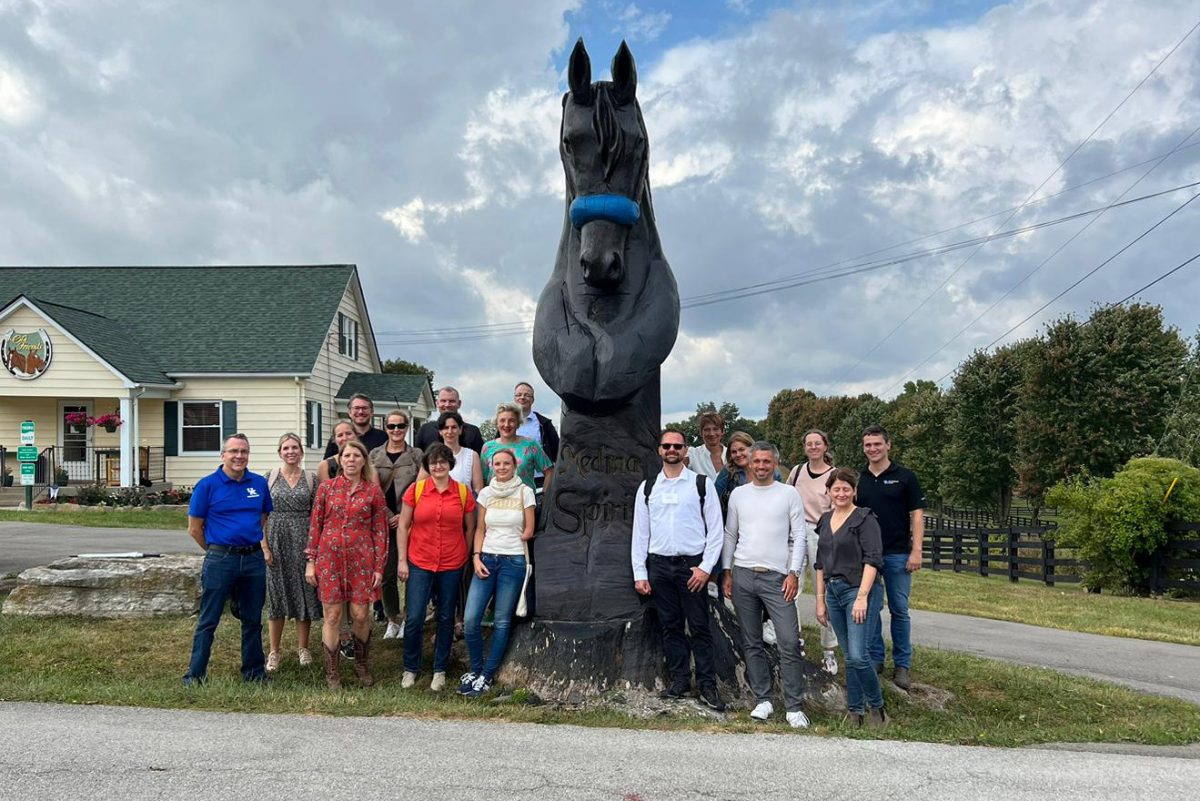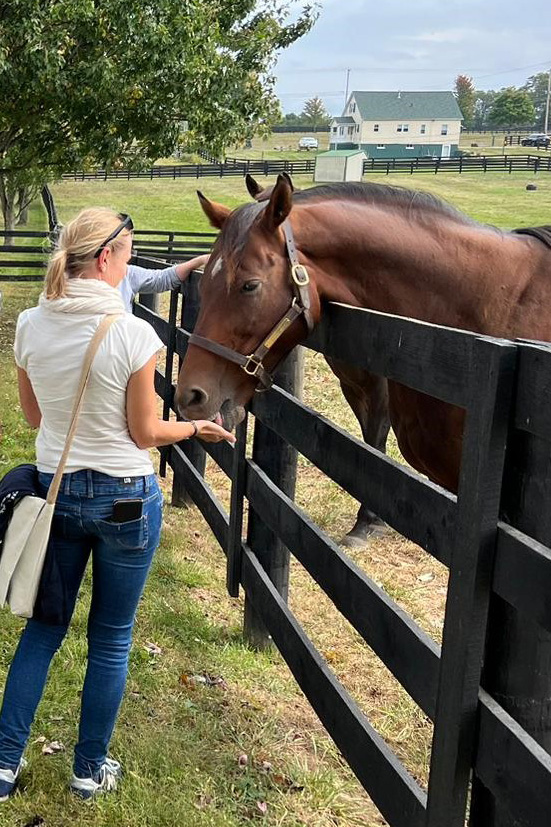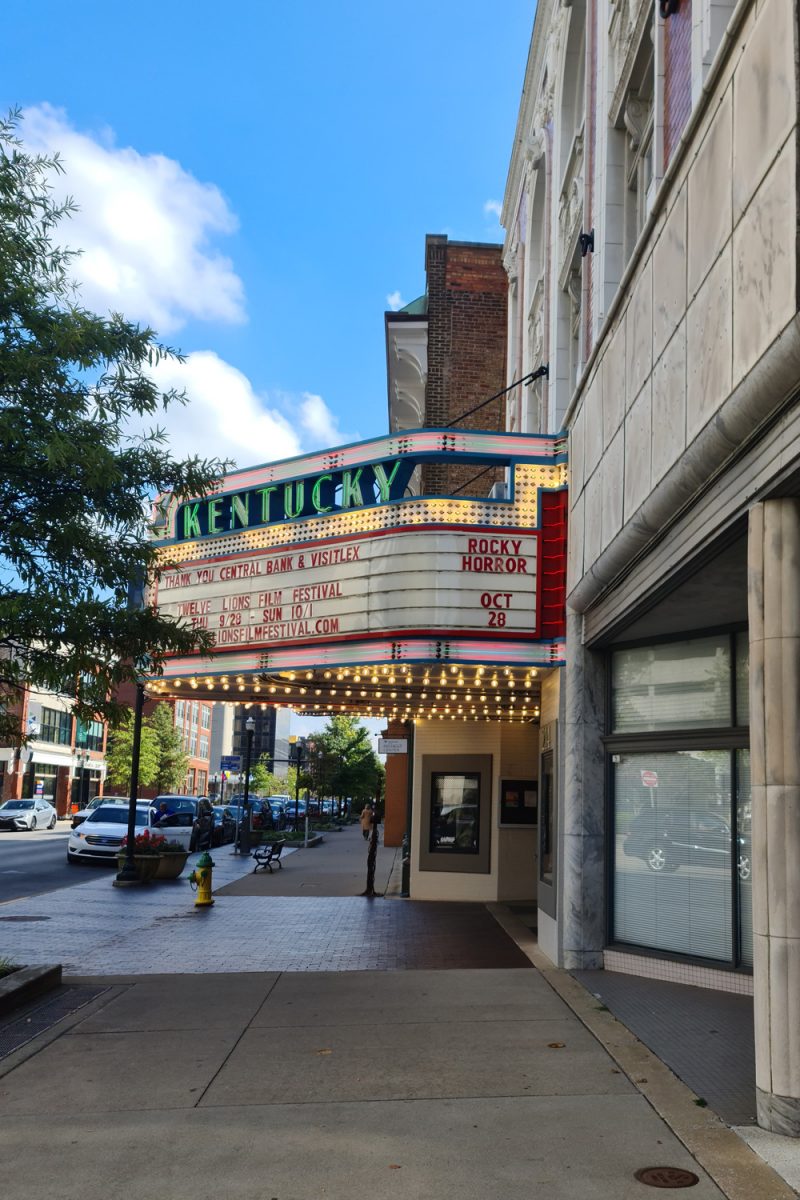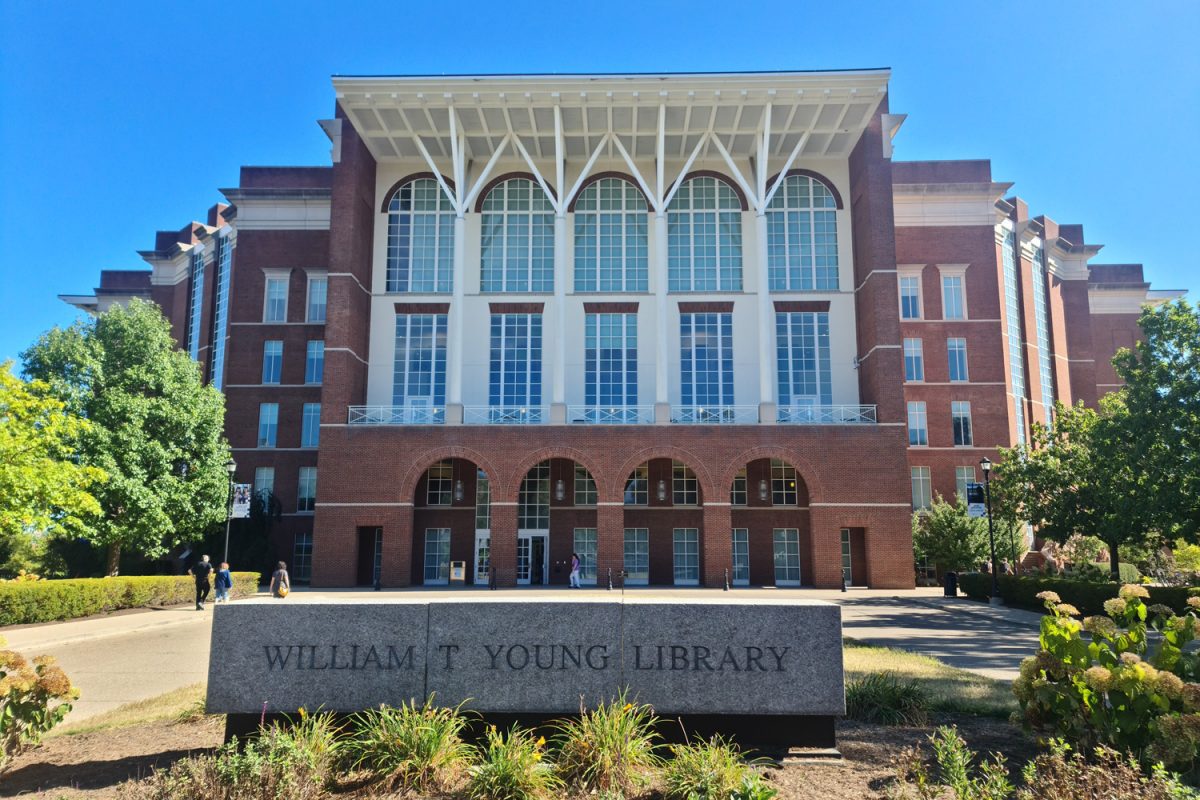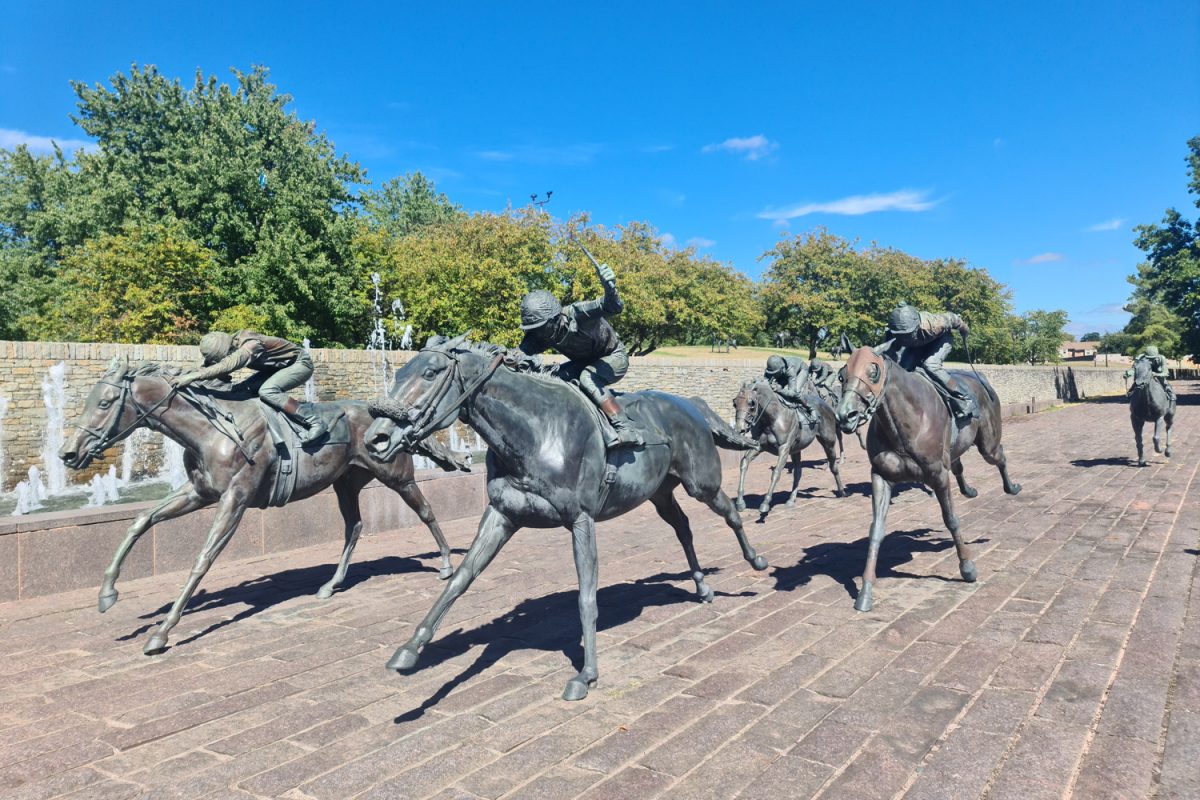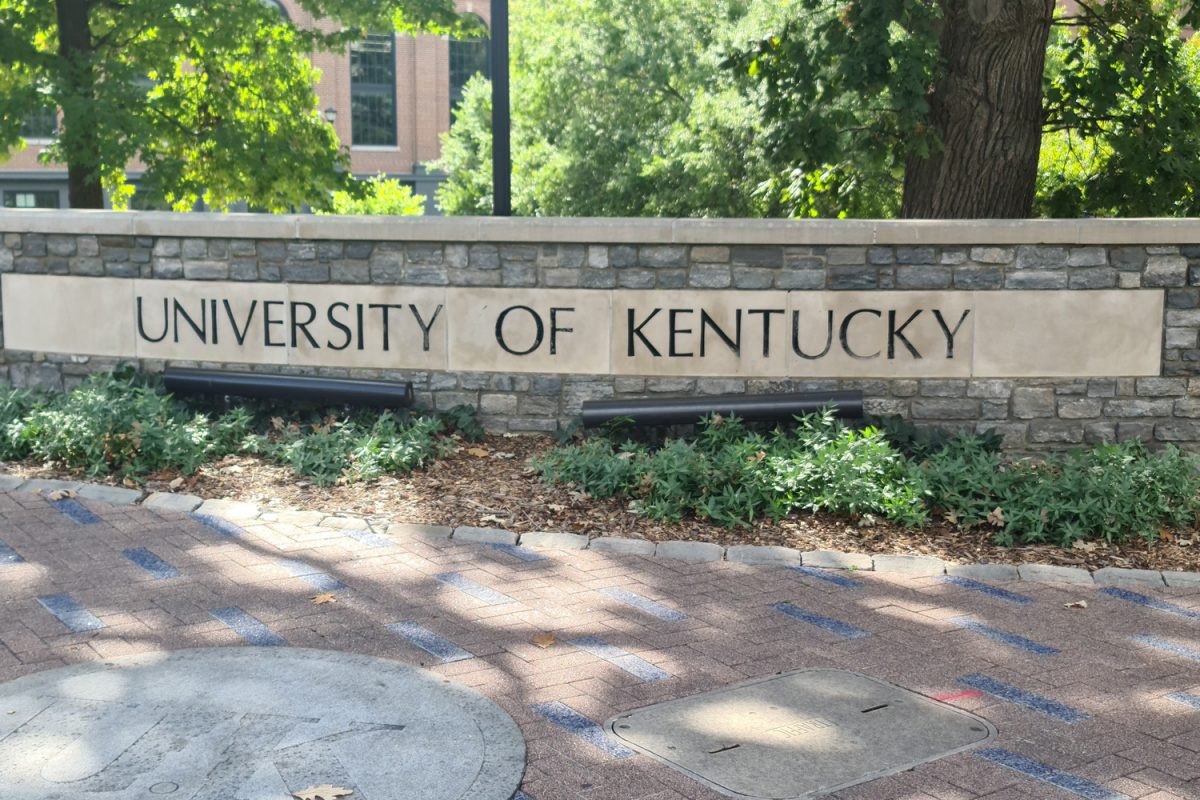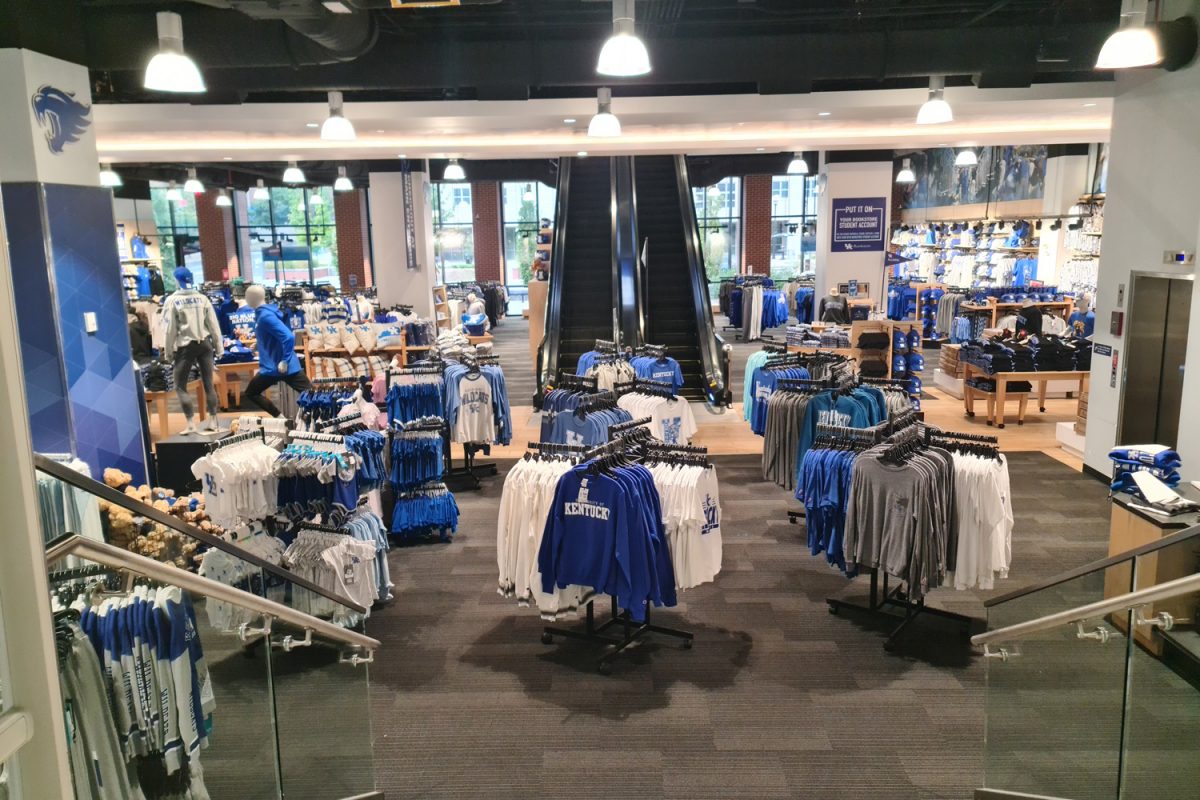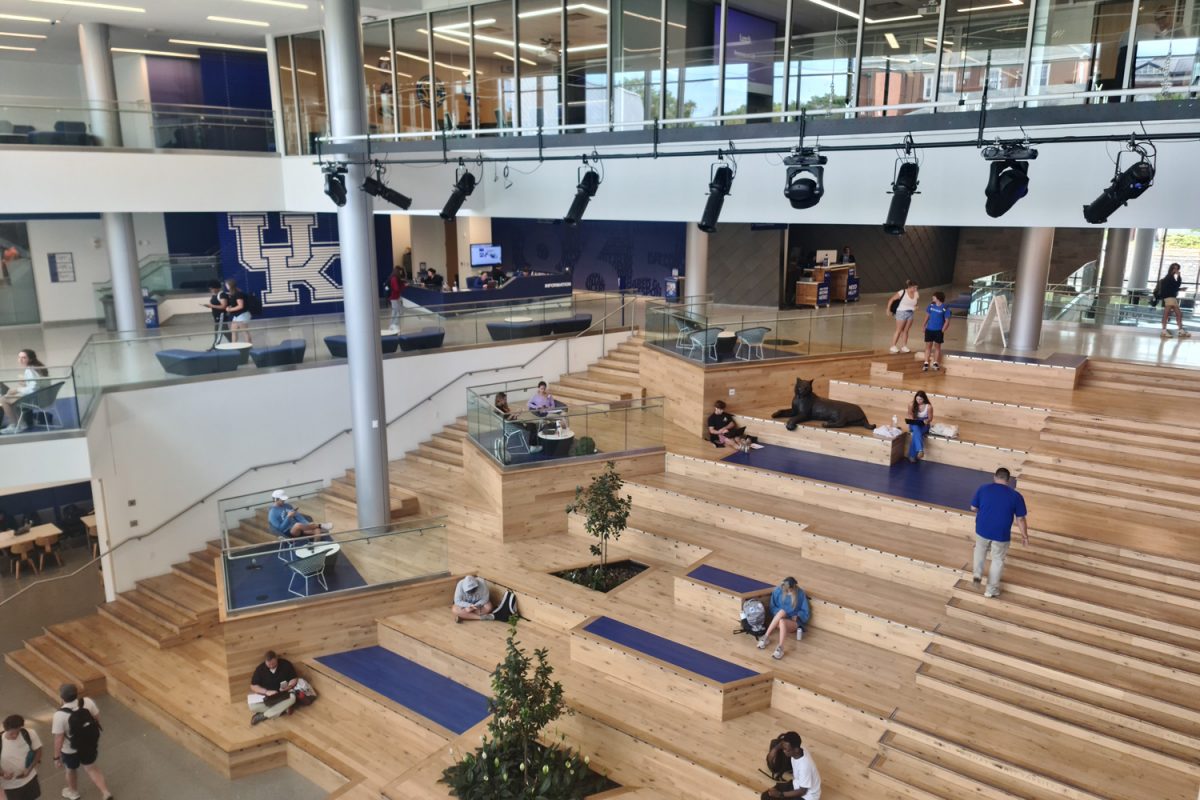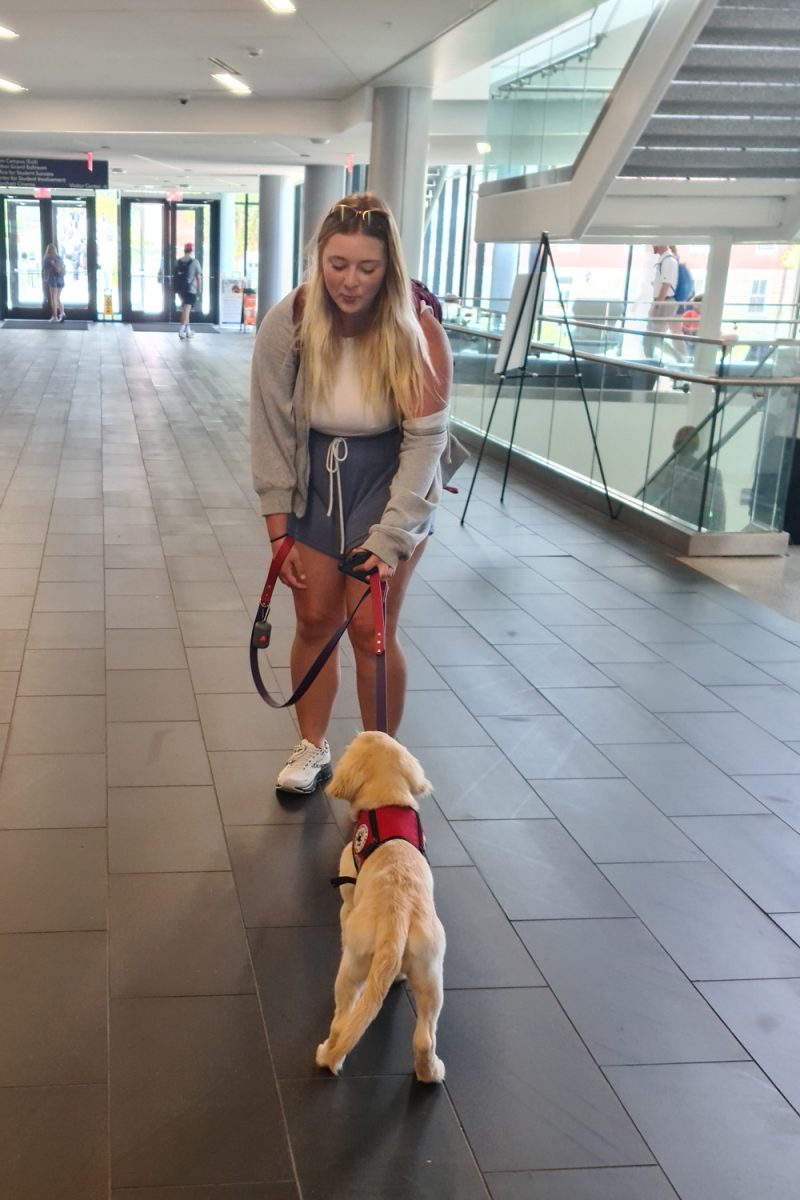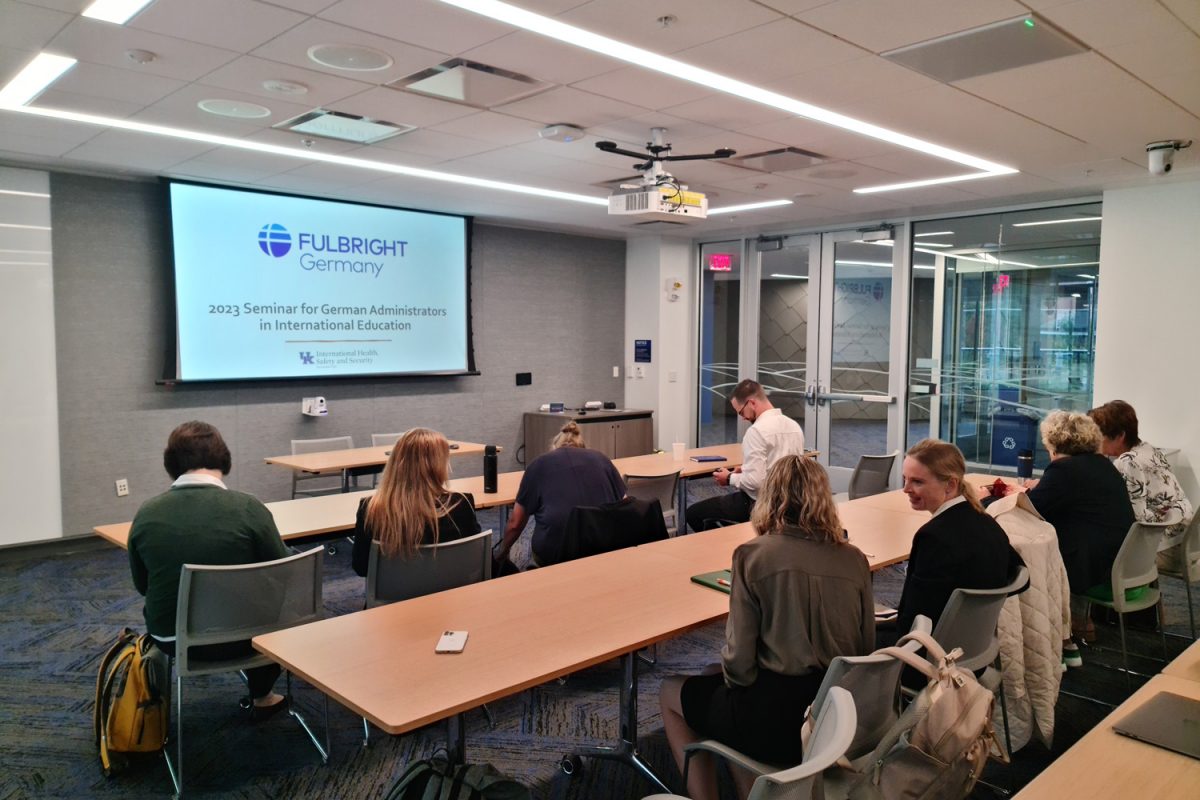Mail from … Lexington TU staff member Anne-Kathrin Kaiser took part in a Fulbright seminar in the USA
General Information
This is where I live at the moment:
In the USA / Lexington (Kentucky).
That’s what I’m doing in Lexington:
I participated in the Fulbright-funded “Seminar for German Administrators in International Education 2023” hosted by the University of Kentucky (UK). The topic was “Managing Risk for International Exchange in Times of Change and Crisis”. My stay lasted one week.
That’s why I decided to go abroad:
I work in the Mobility Office of the International House and look after many US students here. However, I have never been a guest at an American university myself. In order to better understand the needs and expectations of this group, I wanted to see and experience in person how a large state university in the US works in the area of international affairs and how it is set up to look after exchange students. Moreover, the topic of risk management has gained a lot of importance in the last three years.
Local life
This is how I live in Lexington:
I stayed in a hotel in the city together with the other 14 participants from different German universities. Personally, I would have walked the 15 minutes to the campus. But it was completely normal for our hosts to send us three vans with a driver every day.
What makes studying in the USA different from studying in Germany?
Studying and student life in the USA takes place entirely on campus. In addition to the academic facilities, there are several residence halls and various cafeterias, sports and leisure facilities – and even a campus police force. Thanks to high tuition fees and generous donations from alumni, the buildings are all very modern and well equipped. If someone has been particularly generous, the building then also bears their name.
Particularly typical for Lexington is:
Horses have a special place in Lexington, which is also known as the “Horse Capital of the World”. On the way from the airport to the city centre, you drive past huge meadows and the famous “Keeneland” racetrack. Successful thoroughbreds can be seen throughout the cityscape in the form of paintings and monuments, and as part of our social programme we visited a farm for retired racehorses.
That’s what I learned here in the first three days:
Even though the weather was warm and it was comfortable to be outside in light clothing, you should always have something to cover up with. The air-conditioning in all the buildings was running at full blast, so we Germans often had our jackets on in the seminar.
The biggest challenge during my stay has been …
The seminar was very intensive and required a high level of concentration. However, this was affected every time the university’s so-called “support animals” in the form of puppy dogs passed by the seminar room.
That’s what I take home with me:
A UK Wildcats hoodie – the university’s basketball team, lots of input for the student support area and great new contacts.
Good to know
This is a local dish you definitely have to try:
We were allowed to taste a few varieties during a visit to the Buffalo Trace Distillery. In Kentucky, by the way, the bourbon from this distillery is more popular than the Jack Daniel’s from Tennessee, which is better known here.
What are the blunders to avoid in Lexington?
To think that “UK” is an abbreviation for Great Britain. It stands for the University of Kentucky.
This is a tip I give to other staff members who want to go abroad:
Be open to new things and get involved with the other culture, even if some things seem different to you at first. An experience abroad helps you to see your own perspectives and habits in a different light and, if necessary, to question them.

